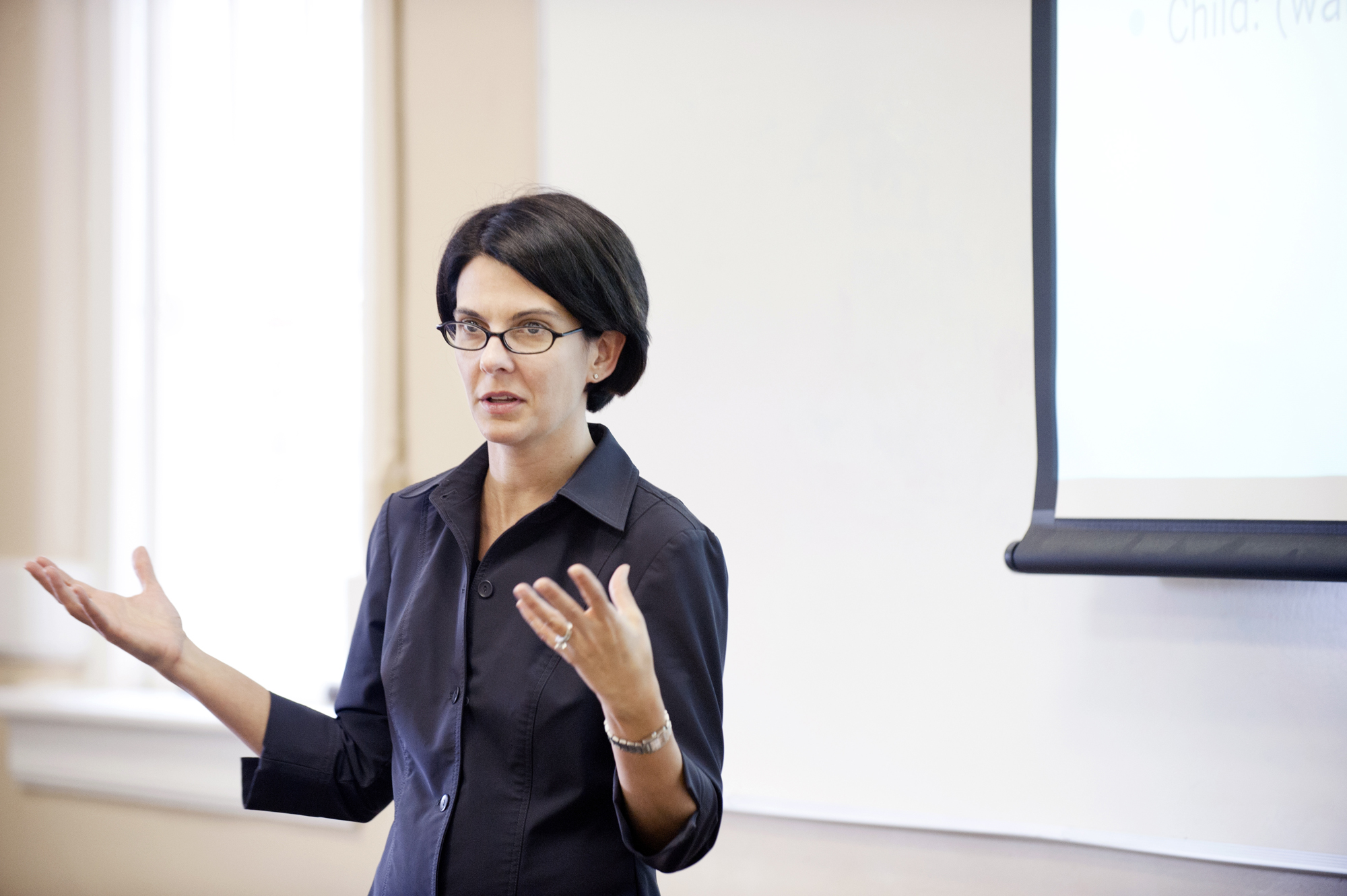Contact: Leah Barbour

Photo by: Beth Wynn
Mississippi State's Center for the Advancement of Service-Learning Excellence provides university students with opportunities to assist communities.
In collaboration with the university's extension service and provost's office, CASLE is enabling a fall semester class to work with groups far beyond campus: For the first time, assistant professor of English Lyn Fogle's class on the teaching of English to speakers of other languages -- TESOL -- included students assisting non-native English speakers in DeSoto and Scott counties.
Fogle said she wanted her students to be able to practice English instruction in a wider context than one-on-one with conversation partners. Both counties are home to high percentages of non-native English speaking clients, and the TESOL students are meeting both locations' specific needs.
"Community partners with the extension offices are able to express what's needed in their towns," said April Heiselt, CASLE director. "All we did was function as a broker, connecting the extension agents with Lyn.
"This is expanding what Mississippi State can do for our students and for communities across the state."
In DeSoto County, Fogle's students are developing how-to-teach-English guides for extension agents, so they can introduce their non-native English speakers to the language, Fogle said. The guides will condense approximately one semester's worth of TESOL coursework into about 20 hours of instruction.
Scott County officials asked the students to develop a combination handbook/phrase book/how-to guide. The pamphlet will describe services offered by various county offices, suggest appropriate expressions and explain how to conduct everyday errands, Fogle said.
Students communicate with the extension officials through interactive video conferencing and email. Fogle said her goal of their serving the community has also helped her students enhance their understanding of course content.
"Students are required to make teaching materials as part of the TESOL class, and they're tying those materials directly to something they've seen or observed in their service-learning work," she said.
Whether developing drivers' exam-description pamphlets or recording a parent-teacher conference explanation video for Spanish-speaking stay-at-home moms, the TESOL students are developing materials their clients need, Fogle said.
"It's very exciting to get students thinking in this way because these are the skills they'll carry to employers in the future," Fogle said. "This class doesn't exist without a service component; it's not just that the students understand the content, but that they know how to apply that knowledge."
Service learning requires constant reflection, she said. As a result, students must adjust their teaching styles as they evaluate whether their non-native English speakers are acquiring the knowledge necessary to communicate in English.
The service portion of the TESOL class represents 35 percent of each student's final grade. Fogle said her students have raised their own professional expectations.
Heiselt said service learning is allowing MSU students to develop additional skill sets while taking on the challenges of doing something new.
"They're able to help the man or woman who's working on the ground level," she said. "Service learning is something that will build your reputation and better your work every day.
"When we come together, we can do so much more," she added. "CASLE's motto is 'learn, serve and become,' and these students are becoming the critical thinkers, the active citizens and the leaders of tomorrow."
For additional information about CASLE, see http://servicelearning.msstate.edu/.
For more about Mississippi State, visit http://msstate.edu